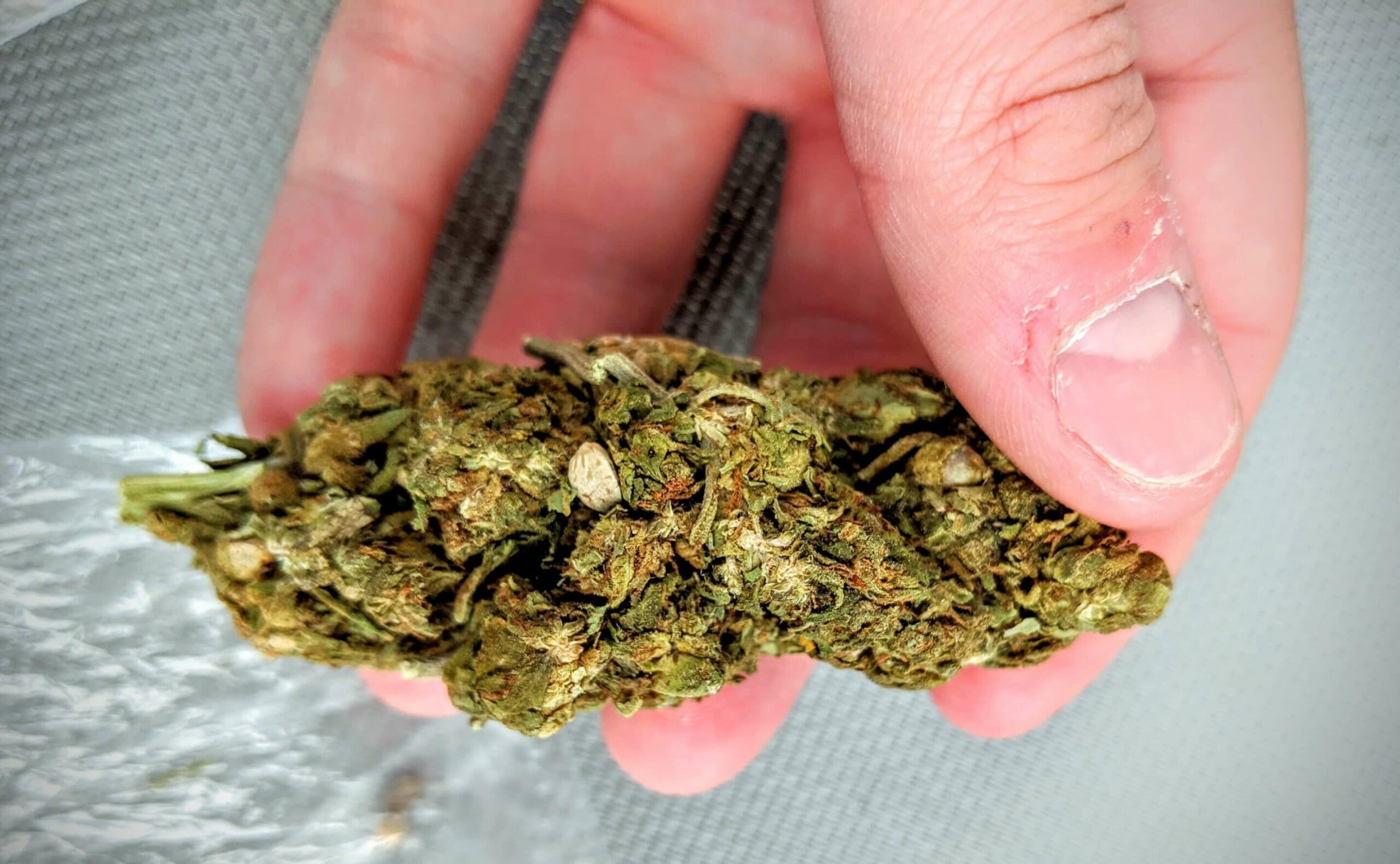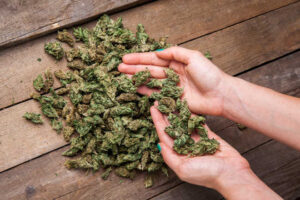
Ganja No matter how we try to describe it, there remains much we don’t understand about marijuana (aka ganja, weed, cannabis or marijuana). An issue Jefferson researcher Brooke Worster hopes to change. She studies medicinal cannabis research with the goal of connecting scientists and patients, sharing what she has discovered thus far.

Effects on the Brain
In the US, “ganja” refers to cannabis used recreationally. When consumed as either smoked in a joint or eaten as edibles, ganja stimulates cannabinoid receptors located throughout the brain to produce feelings of relaxation and euphoria due to THC’s effects; it may also cause dizziness, drowsiness and impaired motor skills; however this sensation often dissipates over time.
Ganja is an abbreviation of Sanskrit word “ghana,” which refers to unfertilized female cannabis plants and was first used by Indian swamis as early as the third and fourth centuries BCE to refer to marijuana. Indians used it medicinally against health conditions like overproduction of phlegm and diarrhea as well as serving as an aphrodisiac and sedative throughout history.

Ganja quickly made its way to Jamaica and was quickly adopte by Rastafarians and Bob Marley. Today, Jamaicans who follow this religion still smoke ganja – but only occasionally. Many use it to ease stress, depression and anxiety as well as improve sleep; additionally it serves as a source of income for many Jamaicans.
As a result of America’s “War on Drugs”, large fields of ganja were destroyed and production is now on a much smaller scale than before. Additionally, no longer is exporting ganja into the US possible as in previous decades; now most exports take place via sea freight or as hidden cargo on commercial flights to other countries.
Ganja can also be found as an ingredient in drinks such as tea, juice and rum, with Jamaicans using it to treat infectious diseases such as malaria which killed so many in the 1800s. Jamaica’s government maintains an uncertain stance toward cultivation of this plant; police and soldiers frequently set up roadblocks in areas known for producing it.
Effects on the Body
Ganja has long been use to refer to marijuana, though other terms might also be appropriate. Ganja refers to marijuana in general but there may also be times when its various other names apply; whether that means grass, herb, pot weed or cannabis it all means the same thing! Cannabis contains numerous chemicals including THC (tetrahydrocannabinol), which has many positive impacts on our bodies ranging from increased hunger and pain relief to even making us feel euphoric!
Ganja has long been use as one of the world most potency natural medicines. Studies have demonstrated its positive impact on health conditions like anxiety, depression, fibromyalgia chronic fatigue insomnia loss of appetite nausea as well as inflammation.

Though marijuana has numerous health benefits for humans, despite this knowledge it remains illegal in most countries and states; this may change however as more people gain knowledge of its advantages. More and more people are now turning to medical cannabis as an alternative solution for prescription medication use.
Jamaica, where marijuana use is widespread, often associates it with Rastafari – an African religious black consciousness movement founded in Jamaica when it was still under British colonial rule and its followers who use cannabis for spiritual practices and believe it has healing properties.

Jamaica and other parts of the world make use of ganja produced by small farmers, making its purchase costly in dispensaries. Still, despite this cost it remains an immensely popular drug used to relax and relieve stress, as well as treat medical conditions such as depression, PTSD, fibromyalgia, or loss of appetite.
Effects on the Mind
Ganja is a ubiquitous term within the cannabis industry, appearing on websites, storefronts and seed packets alike. Ganja is just one of many names people use to refer to cannabis – including “weed”, “herb”, “marijuana” or even “grass”, with each term boasting its own rich and fascinating history.
Like other plants, cannabis has an extensive and multifaceted history with roots from all corners of the globe. As such, its history and influence span far and wide. Therefore there are so many words pertaining to cannabis from cultural influences.

Marketing purposes or scientific research studies that are used as reference. Ganja is perhaps one of the best-known terms associate with cannabis. It refers to both the plant itself, as well as the various products derived from it.

No matter its form of use, marijuana has many therapeutic advantages. Its effects range from pain relief and reduction of anxiety/depression/nausea/insomnia symptoms, to treating loss of appetite due to chemotherapy treatments or eating disorders.
Ganja use is an integral part of Jamaican culture and even considered sacred by some groups, such as Rastafarians. Musician Bob Marley frequently mentions it in his songs while Jamaican authorities take differing approaches when it comes to regulating production versus completely disregarding it.
